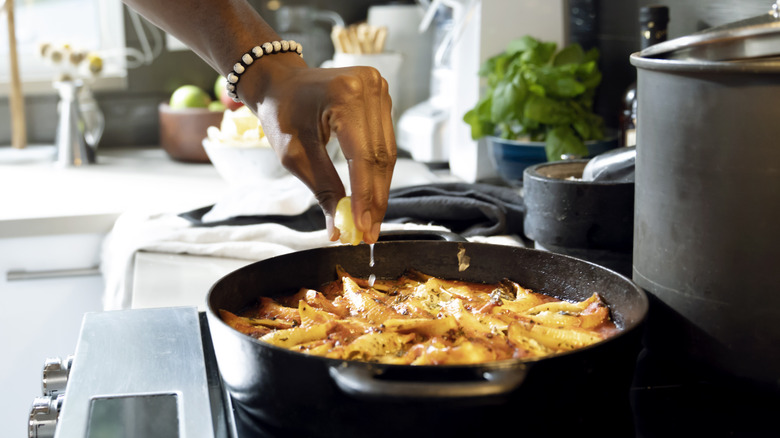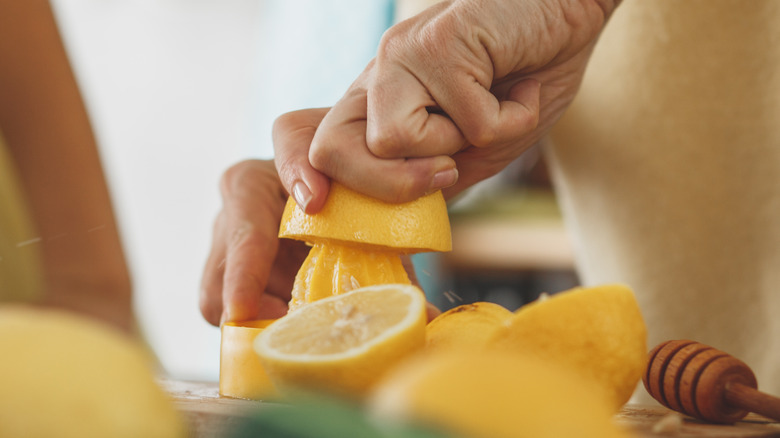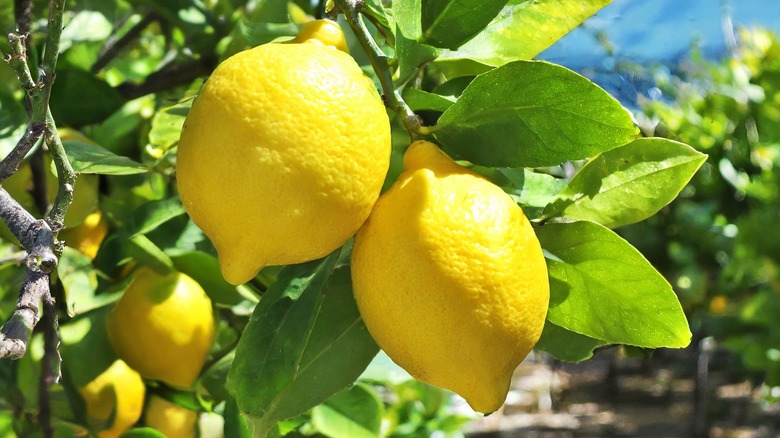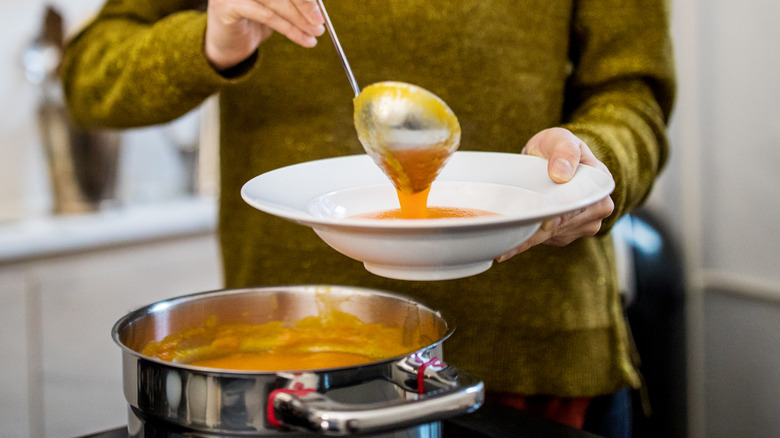Is It Really Such A Problem To Squeeze Lemon Juice Over Hot Food?
You might have heard it said that you shouldn't squeeze lemons juice over hot food, but what is the real risk here? You've likely been to restaurants that serve you hot meals with lemon wedges on the side to squeeze over the dish. Similarly, there are plenty of recipes that call for you to add lemon juice to your food while it is still piping hot. Are these restaurants and recipes all in the wrong?
The answer to that is a little complicated and the best rules to follow aren't black and white. Heating lemon juice does have negative effects on it, both in terms of its flavor and its nutritional value. However, those negative effects are either so minor that you don't need to worry about it, or they're relatively easy to mitigate. If you're looking at squeezing lemon over your plate at the dinner table then you really don't need to worry about it: squeeze away and enjoy.
Why people say you shouldn't add lemon juice to hot food
Studies have suggested that lemon juice provides a wealth of health benefits from relieving a sore throat, to preventing kidney stones, and even preventing or helping to fight cancer. But perhaps its most famous beneficial property is the one that it shares with other citrus fruits: its high quantity of vitamin C. Vitamin C is an antioxidant and helps humans' immune systems.
This is where the idea that you shouldn't squeeze lemon juice over hot food comes into play. Vitamin C is degraded by heat, and that has led some nutritionists to suggest that adding lemon juice to a hot or still cooking dish will destroy the vitamin C. Assuming that the main concern here was to increase your vitamin C intake, it would be easy to see why squeezing lemon juice over hot food should be avoided.
Nutritionally, adding lemon juice to hot food isn't that bad
The big problem with those claims is that they assume that raising the temperature of lemon juice will immediately eradicate all the vitamin C present. That simply isn't the case. While heat does degrade the vitamin C present in lemon juice, the same is true for the presence of light and oxygen. A 2017 study looked at the levels of vitamin C present in vegetables when raw and when cooked in different ways. While the quantity of vitamin C was decreased by cooking, in most cases there was still a substantial amount of the vitamin remaining.
If your sole reason for adding lemon juice to your dish is to have more vitamin C then this would be a negative effect, but it does not eradicate the purpose of adding the ingredient entirely. Additionally, the Mayo Clinic notes that unless you are notably vitamin C deficient, most people get enough vitamin C from their normal diet and additional supplementing is not necessary. If it is a concern, increasing the number of vegetables in your diet will likely have a more positive impact than relying on a squeeze of lemon juice in some hot food. (It also means you're fine to microwave your lemons to get more juice.)
When to add lemon to food for the best flavor results
If you're looking at lemon juice for flavor rather than for its vitamin content, then heat can still be your enemy when cooking it. We love lemon juice for the brightness and zing that it brings to our dishes. However, if you add that lemon juice to a dish that is still cooking, that vibrant boost can be lost as the juice instead becomes bitter, leaving a nasty taste in your food.
If you want to add lemon juice for flavor, it's fine for the food to still be hot, but you don't want it to actually cook. Add lemon juice to your favorite soup only once you've taken it off the heat. If you plan on saving some for leftovers, only add it to the dishes that have been served up from the main pot or serve it with that slice of lemon. That way you can reheat the food in the pot without turning it bitter by cooking that lemon juice.



